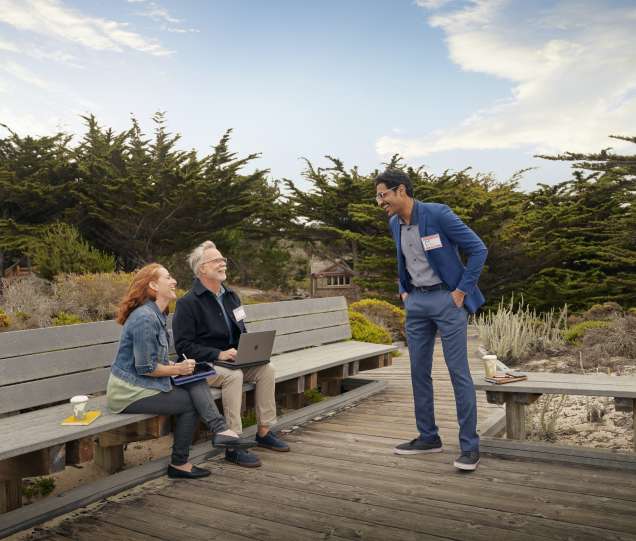As sustainability continues to be a top consideration among meeting planners, Monterey County offers a wide variety of environmentally-conscious venues, lodging and dining options, in-destination transportation alternatives, and more. In fact, the Monterey community has been dedicated to sustainable practices for many years, while the Convention and Visitors Bureau (CVB) has also been raising awareness about sustainable meetings through its Sustainable Meetings Guide.
The destination is no stranger to the impacts of climate change and has taken significant strides to help combat its harmful effects throughout the county and beyond. “Preserving the natural beauty of Monterey County is a top priority,” said Monterey County CVB VP of Business Development, Teresa Savage. “For us, promoting sustainable meetings means providing planners and attendees with the resources and information needed to make more sustainable choices.”
Here are a few ways to plan a sustainable meeting experience in Monterey County.
GREEN HOTELS & FACILITIES
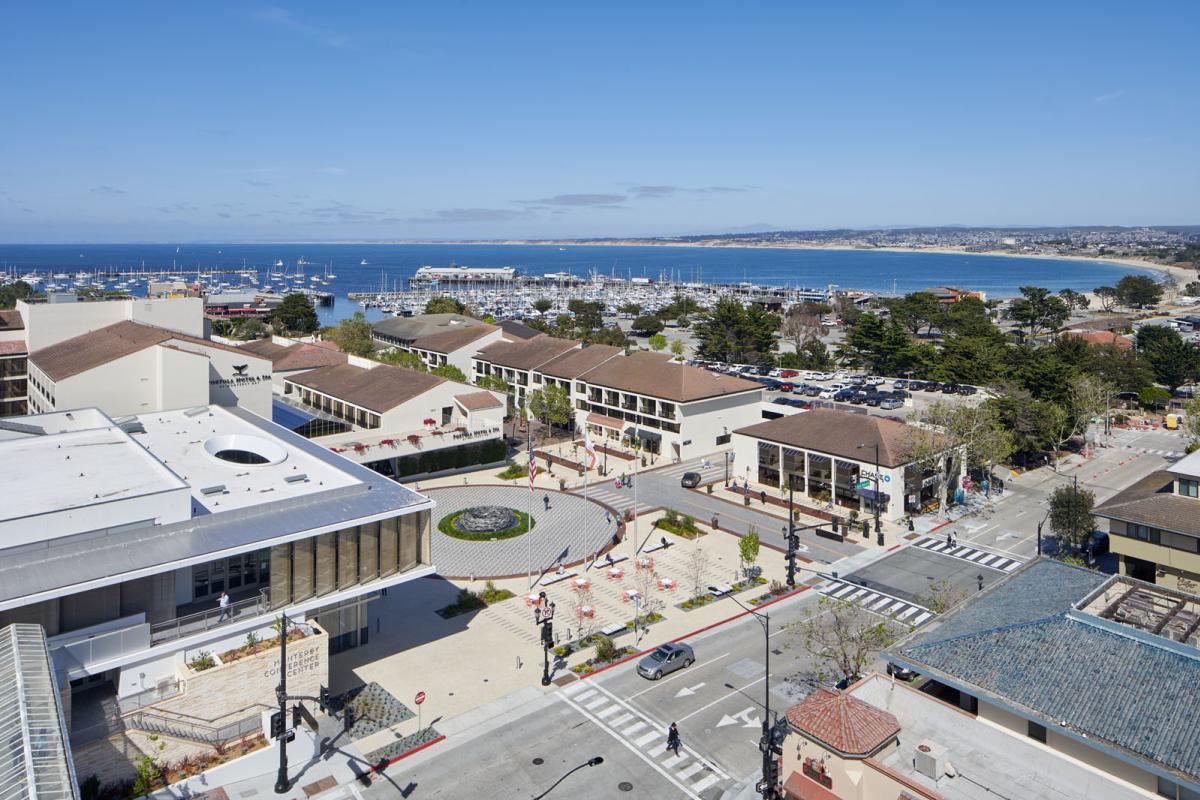
● Monterey Conference Center, located in the heart of downtown Monterey, is LEED® Platinum Certified by the U.S. Green Council and was recognized as a 2021 Top 10 LEED® venue for its water efficiency, energy optimization, sustainable innovation, indoor environment quality, and more. Through the adoption of programs such as the Green Building Ordinance, the Commercial Food Scrap Collection Program, and the Environmentally Preferred Purchasing Policy, the Monterey Conference Center continues to position itself as a leader in the sustainable meetings movement.
● Portola Hotel & Spa, conveniently adjoined to the Monterey Conference Center, has implemented a number of green initiatives throughout the hotel, including LED lighting, Energy Star® appliances, low flow faucets and showerheads, biodegradable amenity products, green cleaning supplies and more. The hotel is LEED® Certified by the U.S. Green Council and was the winner of the 2021 California Hotels & Lodging Association's Good Earthkeeping Award, which recognizes lodging properties that have integrated environmental management practices into their everyday operations while still maintaining quality service.
● Asilomar Conference Grounds in Pacific Grove takes all aspects of sustainability into account through waste management, EV charging stations, water conservation, controlled energy use, responsibly sourced foods and more. The facility has won countless awards, including TripAdvisor GreenLeader “Gold Level” and the California Green Lodging Certification “Environmentalist Level,” as well as important community partnerships with the Monterey Bay Seafood Watch program and the Organics to Energy program.
● Pebble Beach Resorts, located less than 10 miles from the Monterey Conference Center, offers a number of programs dedicated to preserving its 5,300 acres of properties, golf courses and open coastline. The resort’s Energy Efficiency Program was established in 2008 and has resulted in a reduction of more than 1.9 million pounds of carbon emissions annually, while the Materials Program has diverted 6.5 million pounds of plastic, glass, metal and dozens of other materials from landfills annually. Other green programs include water conservation, golf ball recovery, and a full-time staff dedicated to ecology and forestry.
CLEAN FOOD & DRINK
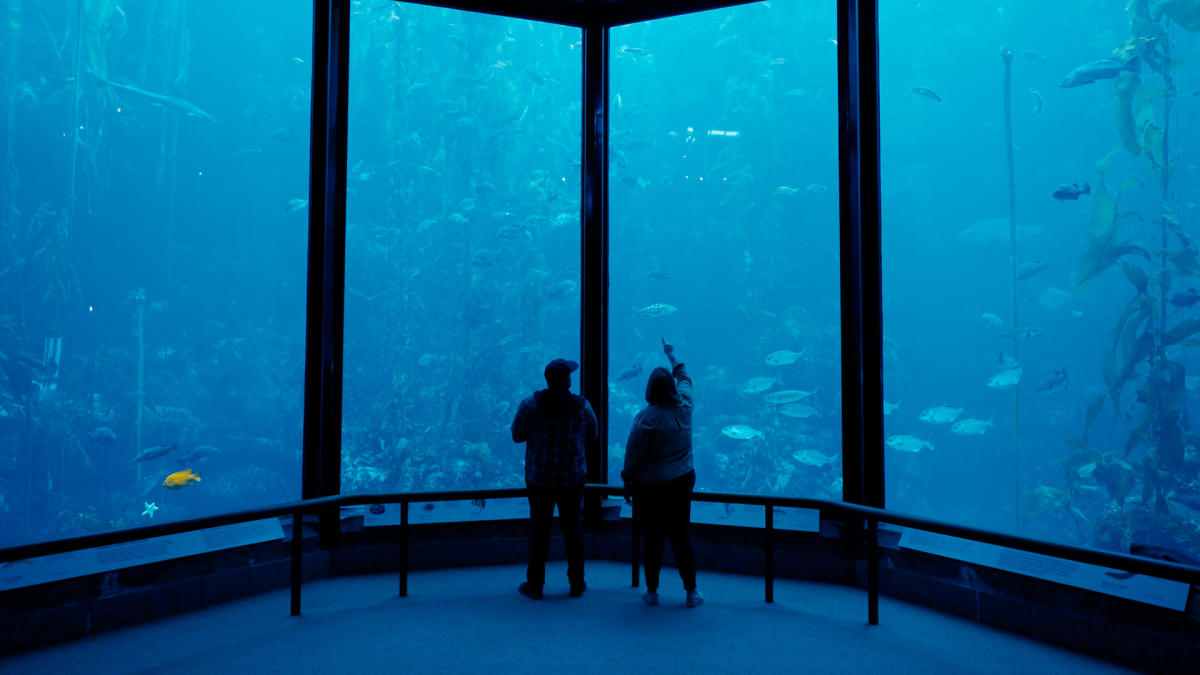
● The Monterey Bay Aquarium Seafood Watch Program has been working to transform the seafood industry for more than 20 years and has grown to be a global leader in the sustainable seafood movement. Nearly 90% of fish populations are fished at, or above, their sustainable limit. The Seafood Watch Program is committed to educating and empowering consumers, restaurants, retailers, seafood suppliers and government officials to make more sustainable decisions when it comes to food selection. Dozens of Monterey County’s restaurants are certified by the program including, Wild Fish, Montrio, and Old Fisherman’s Grotto.
● Monterey County is known for its wide variety of farmers’ markets that showcase the agricultural bounty of the destination. Meeting attendees can help support local growers, chefs and business-owners by visiting the markets or dining at restaurants that source ingredients from them.
● Monterey County is home to several wineries and vineyards dedicated to sustainable winemaking. Holman Ranch in Carmel Valley prides itself on its sustainable practices. The ranch does not use any machinery for picking or pesticides for growing, everything is hand-picked and processed naturally. Their holistic approach to agriculture also allows for distinct wines year-to-year based on the climate and soils. Scheid Vineyards, which is celebrating 50 years in 2022, in Salinas Valley received the California Green Medal Environment Award, as well as Global G.A.P., S.I.P. and C.C.S.W certifications. The vineyard’s winery and bottling operation is 100 percent powered by a wind turbine that also produces power for 125 nearby homes with renewable energy.
EDUCATIONAL GROUP ACTIVITIES
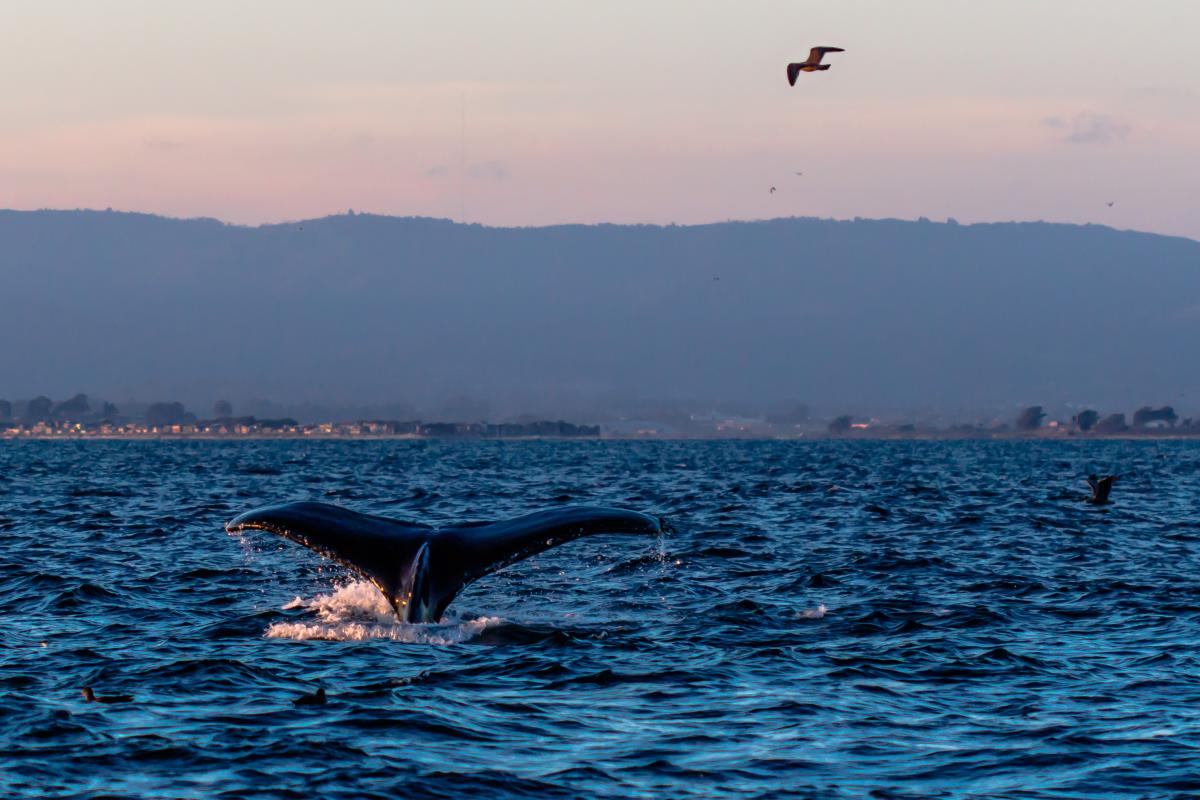
● Recognized as one of the nation’s largest federally-protected marine sanctuaries – spanning 276 miles of shoreline, extending an average of 30 miles off the coast and reaching more than two miles below the ocean’s surface – the Monterey Bay National Marine Sanctuary is larger than Yellowstone National Park, deeper than the Grand Canyon and located steps away from the Monterey Conference Center. Plus, with 36 species of marine mammals and at least 525 species of fish, the sanctuary is a remarkable location for wildlife viewing and education. Groups can safely explore the sanctuary in a variety of ways, including walking, kayaking, boating, fishing, tide pooling, diving, whale watching and more.
● Another educational activity for groups located just steps away from the Monterey Conference Center is the Monterey Bay Aquarium. With over 200 world-class exhibits and 80,000 plants and animals – including the newly opened, first-of-its-kind Into the Deep exhibit that explores the mysterious deep sea – meeting attendees will receive a first-hand look at the ocean’s ecosystems and the importance of preserving them. Behind the scenes, the aquarium’s scientists, engineers, ecologists and researchers are leading the way in sea exploration and conservation by addressing the biggest threats facing the ocean today, like rebuilding sea otter populations, tackling plastic pollution, diving into the science of climate change and improving aquaculture around the globe.
● Monterey County is one of the nation’s leading suppliers of produce, providing 61% of leaf lettuce and 57% of celery distributed across the U.S. Meeting attendees can support and learn more about this influential industry by visiting the Earthbound Farm Stand in Carmel Valley. Founded in 1984 in a local family’s backyard, Earthbound Farm has grown to 30,000 organic crop acres and is recognized as one of the first brands to catalyze the accessibility of fresh, organic food. Today, the farm is 100% USDA Organic Certified and Non-GMO Verified. Groups can enjoy a delicious meal at the organic café, take a tour of the grounds with an expert gardener or pick fresh herbs and berries at the stand.
MAKE AN IMPACT
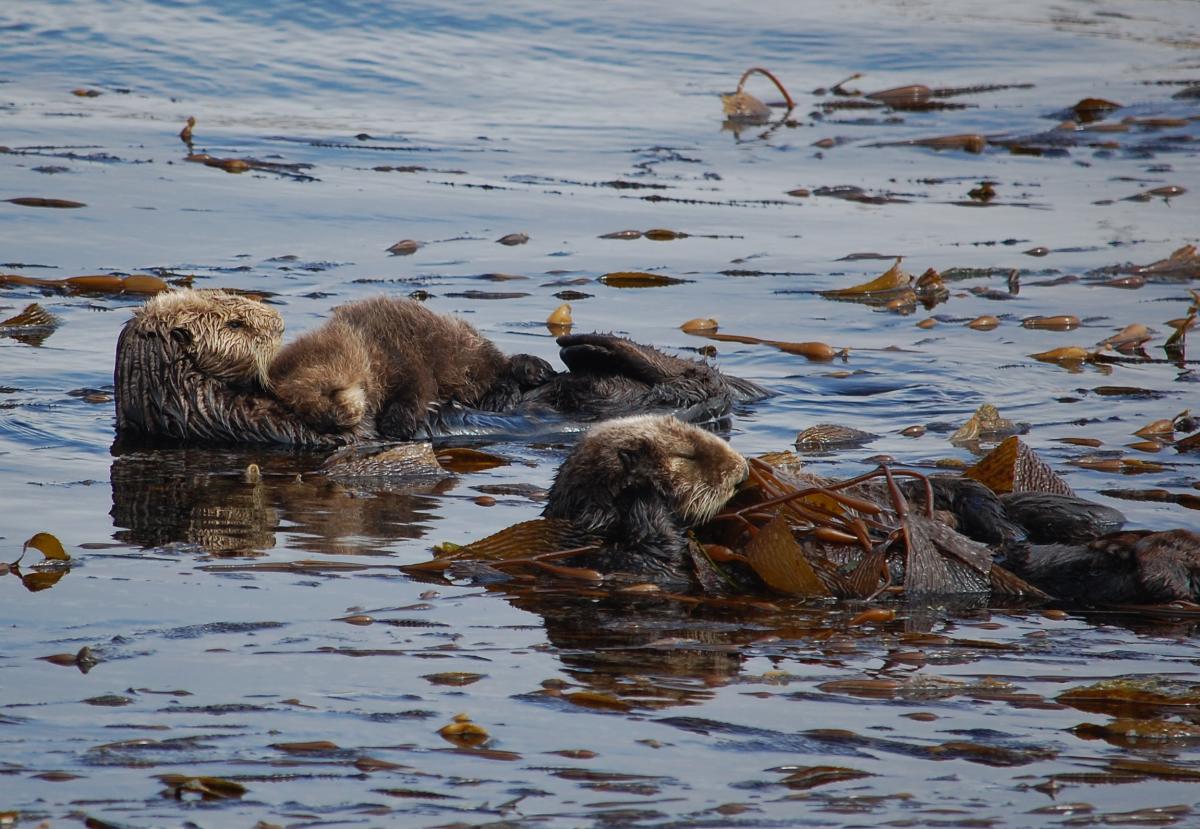
● Meeting attendees can opt for alternative and sustainable transportation to get around town. The Monterey Peninsula is not only an extremely walkable locale, but it also offers bikes and ebikes for rent from outfitters such as Adventures by the Sea. Attendees can also explore the area by cruising along the 18-mile Coastal Recreation Trail or for those who are looking to hit the water, eco-boat tours are a great way to see the coast and marine life in a fully-electric catamaran.
Learn more about how to plan a sustainable meeting or event in Monterey County.

